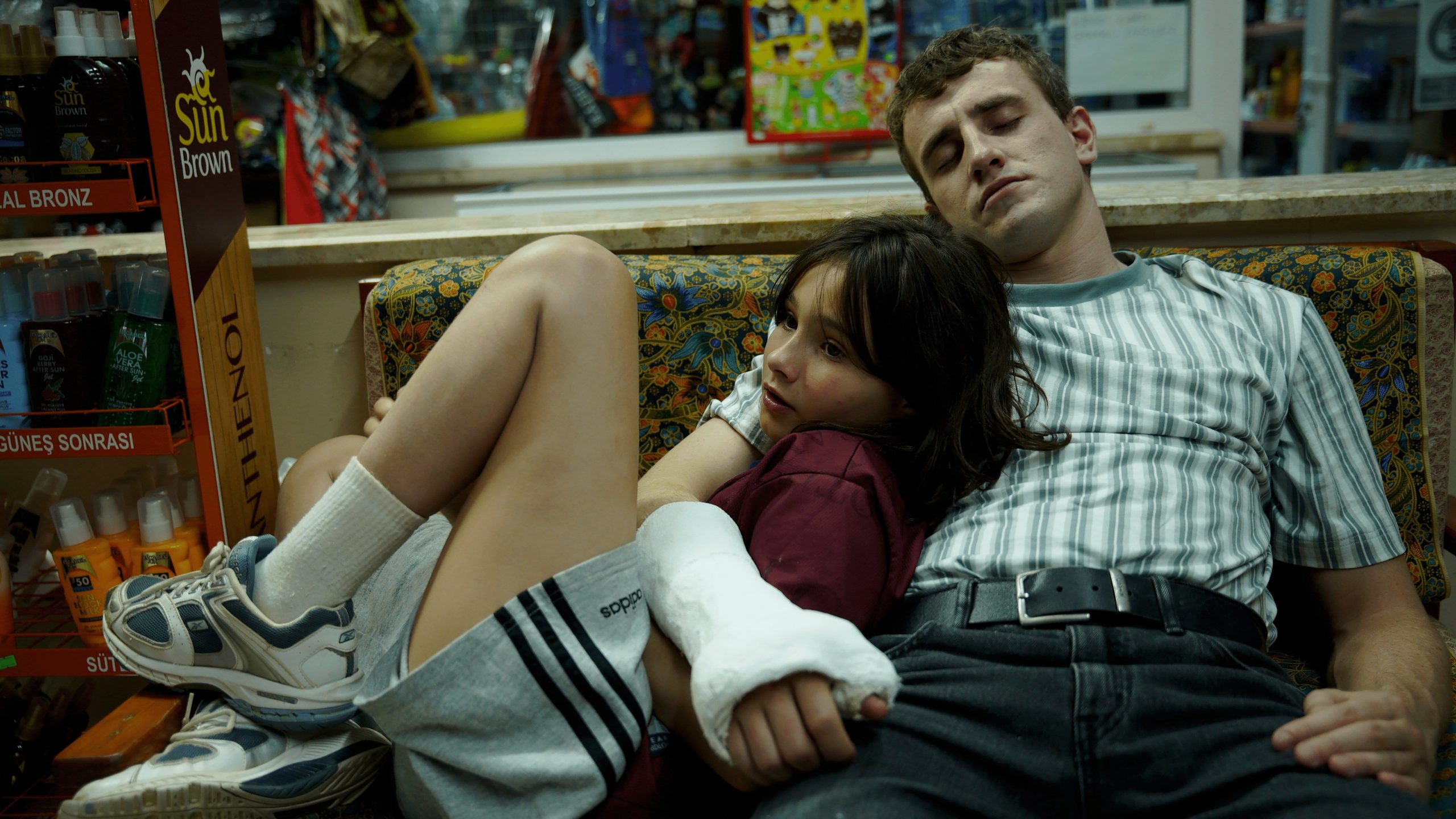⭐⭐⭐⭐
Some films are hard to summarise when asked “What is it about?” Not necessarily because their plots are mind-bendingly complicated or surreal and fantastical, but rather because they are so simple. Aftersun, which premiered at the Edinburgh International Film Festival on Friday 12th August, is one of those films. So, what is it about? A father and a daughter. On paper, that is all. As an adult, Sophie looks back at a holiday to Turkey she and her father went on twenty years ago. Yet in telling that simple story, it sheds light on trust, maturity, family and childhood – resulting in a mesmerising film.
The film has little by way of traditional plot. It primarily tells the story of the main characters’ holiday, interspersed with home video footage. Callum (Paul Mescal) and his daughter Sophie (Frankie Corio in her film debut) drift through their holiday together, spending time by the pool, playing games, and having dinner together. When problems arise, such as being given a room with a double bed rather than two singles, they do not cause big disturbances. The story allows space for nuance and complexity. The relationship between father and daughter is not simplified, but explored in depth. In one scene, Sophie’s father is strongly protective of her, telling her she can confide anything in him. Yet in another, when she wants them to sing together at a karaoke night together, he stubbornly refuses, forcing her to sing alone.
Despite a simple premise, as the film progresses, it teases out greater meaning while gradually and effortlessly building emotionally, drawing the audience in. The film tracks two parallel developments in the main characters. Sophie’s is one of development and growing up. Over the holiday, she makes experiences that mature her (such as hanging out with teenagers who drink and having her first kiss). At the same time, she begins to see her father’s faults – who is determined to hide them.
Callum’s development is one of stagnation and retrospection. As the film progresses, he reflects more and more on his life and age (the film builds towards his birthday) and his dissatisfaction and sadness, which he must hide from his daughter (the moments where his daughter points out his financial problems seem to sting the most – and are amplified by his response, such as to buy an expensive rug he cannot afford). His guilt after getting drunk, abandoning, and locking Sophie out of their hotel room is a poignant moment that reveals to her his fallibility – and his disappointment in himself. At the same time, he witnesses his daughter’s growth and feels her drifting away from him.
None of this is addressed with drama or heavy-handedness. Rather, they are themes and character developments that are teased out over time. The main actors’ performances are understated. Their emotional shifts are plotted out precisely but subtly, and are brought to life by stunning performances by Mescal and Corio, whose relationship on-screen feels all the more real because of it.
At its core, this is why Aftersun is such a powerful film. It feels real, from the grainy home video interspersed through the film to the relationships between characters and its meandering story. The director, Charlotte Wells, who grew up in Edinburgh, allows the reality of the scenes to unfold naturally. Rather than emphasising big dramatic moments, a far truer to life portrayal of a father and daughter emerges, delicately exploring family, trust and childhood in a mesmerising and poignant film.
Aftersun had its UK premiere at the Opening Gala of the Edinburgh International Film Festival on Friday, August 12th.
Press Image courtesy of MUBI.

